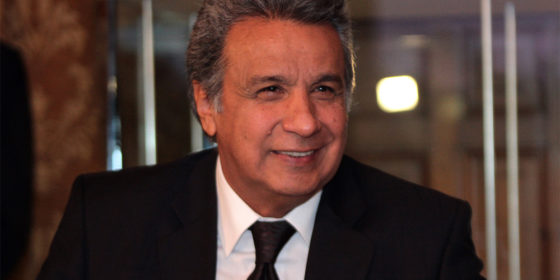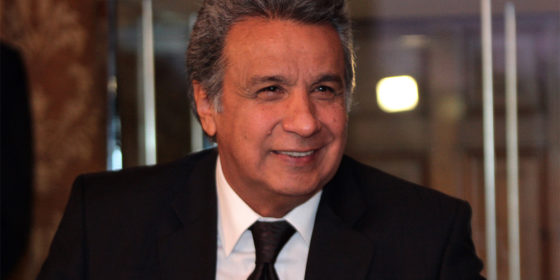
Readers who are familiar with Ecuador would be aware of its latest development, where the new gender identity law enacted just last year now allows trans Ecuadorians to legally change their gender without having to undergo sex reassignment surgery.
As I spoke to LGBTI activist Pamela Troya, this month, however, I realized that there is much more than it meets the eye.
Underneath the peaceful bed of roses there seems to lie a series of obstacles of which Ecuadorian activists are still unable to overcome in their fight for equality.
But Troya is not giving up.
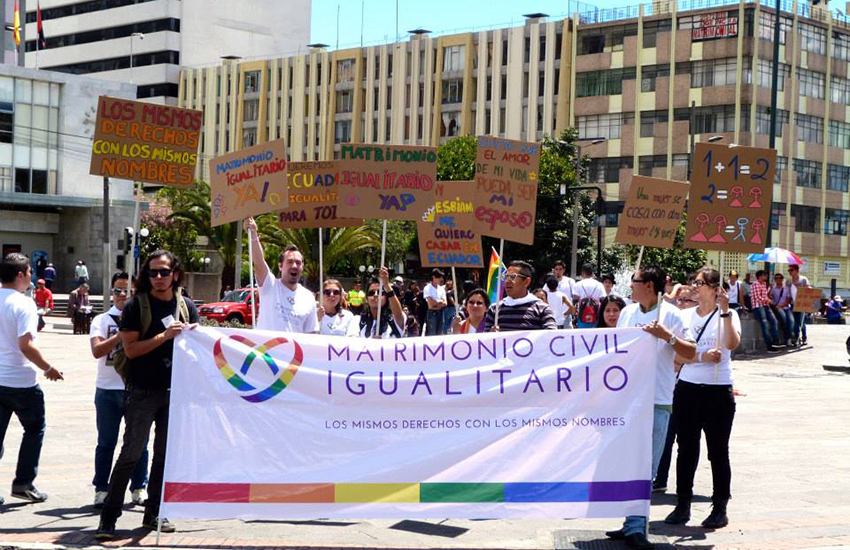
Troya made news headlines in 2013 when she and partner Gabriela Correa became the first same-sex couple to apply for marriage in the capital of Quito.
Despite Ecuador having approved same-sex civil unions in 2009 following a constitutional ban in 1998 on discrimination based on sexual orientation, same-sex marriage was still not legalized.
Having her marriage application rejected, Troya subsequently filed a lawsuit to strike down the ban – even engaging in a war of words over Twitter with then-President Rafael Correa – but till today has not been successful in achieving her aim.
The lawsuit currently remains pending, since the last verdict given by the country’s Constitutional Court on 9 December 2014.
‘It has been complex to reactivate the campaign because of the hostile political scenario that Ecuador experienced under the ex-presidency of Rafael Correa, who ruled in all branches of government despite the assumption that state powers are independent,’ Troya explains to me as I attempted to find out what happened after that fateful day in 2014.
She adds: ‘[Correa had] said that while he is president, marriage will not be approved for same-sex couples in Ecuador.’
As I probed deeper into Correa’s exact influence in legalizing same-sex marriage in the country, I must admit I was a little taken aback by the information I received.
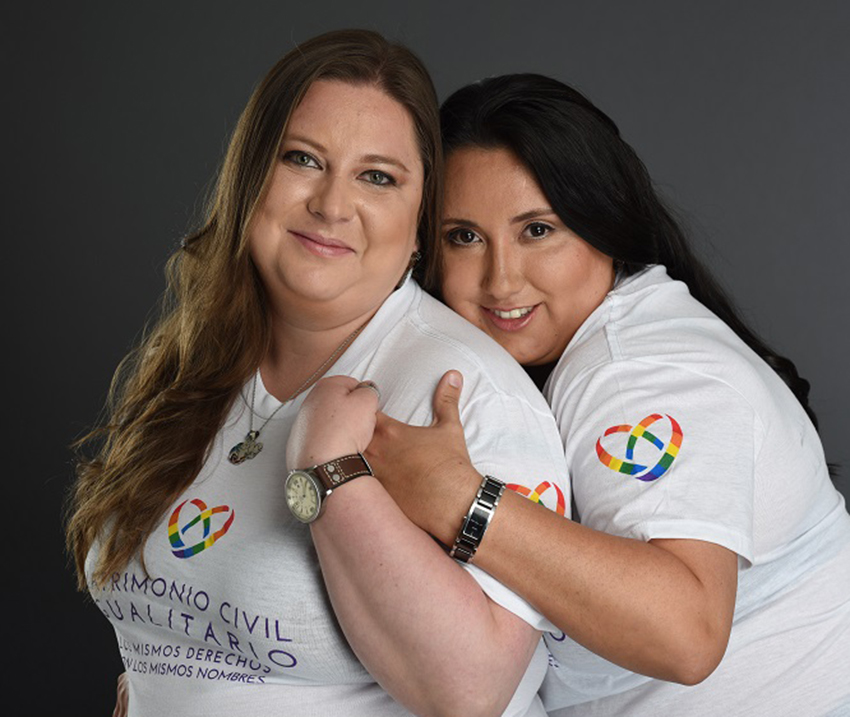
‘The Correa regime generated parallel social organizations that served to legitimize the discourse of the regime and delegitimize the organizations opposed to the government,’ says Troya.
She adds: ‘This happened to the LGBTI theme and thus the LGBTI Federation of Ecuador, an LGBTI faction allied to the regime, was born, whose spokesperson has always spoken up against same-sex marriage, claiming that only the upper-class gay people were looking to get married.’
And that was not all.
According to Troya, the Correa administration had also come up with decree 16, that allowed him to persecute and close non-governmental organizations (NGOs) at his whim.
While no LGBTI NGOs were closed under this decree, Troya explains that there was a general atmosphere of fear lingering around.
With an opposition so strongly backed by the government, or in some cases perpetuated by the government itself, it is no wonder that the activities of Troya’s campaign – Matrimonio Civil Igualitario (Same-sex Civil Marriage in English) – has been put on hold over the past few years.
Funding seemed to be an issue as well.
‘LGBTI NGOs in Ecuador that have obtained funds have dedicated their work to the issue of HIV, a problem that falls almost exclusively to the target group of men-who-have-sex-with-men, or HCH as they are called by these NGOs,’ explains Troya.
‘In addition, Matrimonio Civil Igualitario does not have legal status, which makes it impossible to receive funds,’ she adds, revealing that the funds to launch the campaign in 2013 – which came up to less than US$4000 – came from herself and some other fellow activists.
According to Troya, however, funding for Ecuadorian LGBTI NGOs have declined considerably in recent years, since international donors now have the impression that funds could be channeled to others that need more help.
But Troya also claims that this wrong impression is the result of an ‘orchestrated deception’ between the Correa administration and its allied LGBTI faction.
This year, however, the table seems to be turning for Troya and her team, as Correa stepped down earlier this year to make way for the country’s new president, Lenin Moreno – who according to Troya has a more ‘conciliatory tone’ on LGBTI issues.
‘We will reactivate the campaign to advocate for same-sex civil marriage, on one hand getting a meeting with the new President Lenin Moreno, and on the other hand, continuing to pressure the Constitutional Court to address our cause,’ says Troya.
Troya’s efforts this time will also include supporting the efforts of existing LGBTI advocacy groups, as per what her campaign has done in the past.
‘As visible activists, we have echoed initiatives of other LGBTI organizations as is the case of Satya, daughter of an English lesbian couple Helen and Nicole, who since 2012 is not able to be registered as their daughter with both mothers’ surnames,’ says Troya.
She says the country’s civil registry currently compels children of lesbian couples in non-adoptive cases to be registered under the biological mother’s last name.
Troya also adds that her campaign has highlighted the fact trans people have to be accompanied by two witnesses to verify that they have been trans for at least two years before they are allowed to vote.
It is understood that with the enactment of the new gender identity law late last year, this requirement has been abolished earlier this year in February to allow trans people to vote according to their chosen gender.
The road to legalize same-sex marriage ahead, however, will still not be easy.
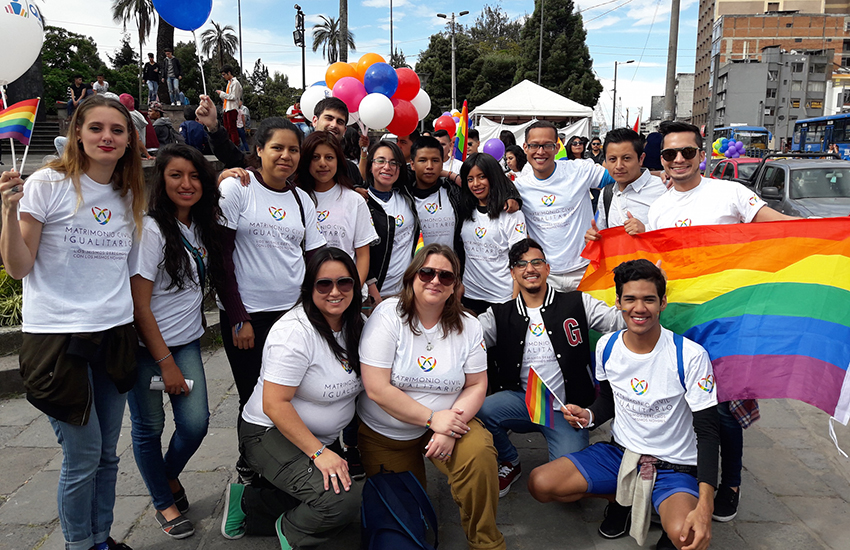
In a 2013 study done by Ecuador’s National Institute of Statistics and Censuses, it is found that 70.9% of 2,805 LGBTI Ecuadorians surveyed reported experiencing in their families some form of rejection, control, imposition or violence due to their sexual orientation or gender identity.
‘Ecuadorian society is macho, homophobic and violent. Six out of 10 women suffer violence from their male partners, and 40% of children are exposed to corporal punishment in their homes,’ says Troya.
She adds: ‘More than that, we must not forget the religious component of our society, which provokes a rejection towards LGBTIs.’
It is understood that like many South Americans, most Ecuadorians in the country profess to the Catholic faith. While that does not in itself constitute as a problem, however according to Troya, this is a big issue for the LGBTI population.
‘In 2013, evangelical pastor Nelson Zavala was presented as presidential candidate of that year’s election, and his prejudice towards the LGBTI population was so high that we were forced to bring a trial against him, which we fortunately won. He had to withdraw his political rights for a year and pay a fine,’ says Troya.
‘Some of his [Zavala’s] statements argued that homosexual persons are the divine punishment of the anal intercourse of our fathers, and as a result of that, we cannot, for example, be in charge of jobs like running a hospital,’ she says. She believes fundamentalist groups in Ecuador today, who work closely with Roman Catholic group Opus Dei, shelter their real agendas with a religious veil.
Faced with these obstacles, Troya however still feels all is not lost.
‘We don’t care if a politician is religious or not, what matters here is that this politician can differentiate his particular beliefs from his obligations, to govern for all people,’ says Troya.
‘Opposition candidate [for Ecuador’s Presidential Elections this year] Guillermo Lasso, who was in second round with Lenin Moreno and who finally lost, was also close to Opus Dei and opposed legalizing same-sex marriage.
‘He however, said that he would give independence to the powers of the State to finally be the Constitutional Court that makes decision without the pressure of the president,’ she adds, also highlighting that former Quito mayor Paco Moncayo had also openly expressed his support for LGBTI people during his presidential campaign.
Troya also made reference to the success of neighboring Colombia, of which Ecuador shares ‘our idiosyncrasy’ with.
‘[Colombia] is also conservative and religious. They however, has had a Constitutional Court that has respected its independence and judges who have done their work,’ explains Troya.
She adds: ‘I hope and trust that we will approve same-sex marriage [five to 10 years later].’
(This story first appeared in The Santiago Times, in which Darius Zheng is also a special correspondent of. Darius is also an LGBTI activist who is currently based in Santiago, Chile. Permission has been obtained to share this story with Gay Star News as part of a monthly collaboration between GSN and The Santiago Times to feature the work of LGBTI activists from the Latin American region. )

